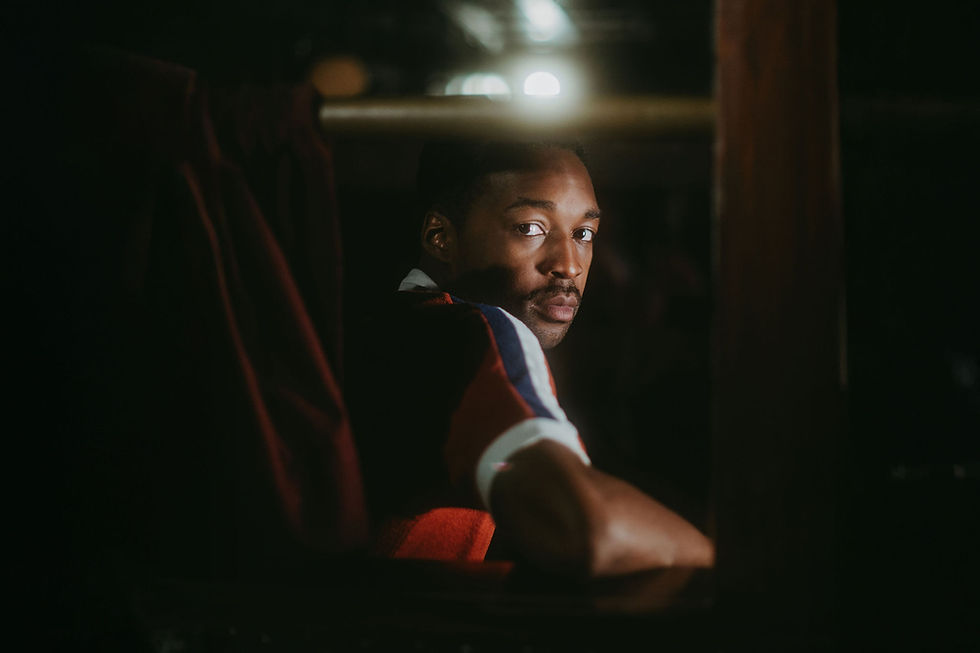EMILY BARKER – FRAGILE AS HUMANS: REVIEW
- May 3, 2024
- 4 min read
Updated: May 3, 2024

EMILY BARKER
Fragile As Humans (Everyone Sang)
GRIEF IS A SHIT OF A THING and pain is just hard, but if you’re making art, if you’re writing songs, they can in many ways be (relatively) easy to write about because they offer so much meat on which to chew. Most writers will tell you that writing about joy, or even further, exhilaration, is harder to do, possibly because the path seems more littered with clichés that aren’t as acceptable as those around suffering. Grief and pain are serious, adult things; joy is childlike.
But I wonder whether harder than both is to write about “merely” contentment or discomfort, a level of fulfilment or some manageable, if still not easy, degree of unhappiness or dissatisfaction. Like writing about middle age and middle marriage – instead of unfettered youth and the rubble of relationships – the “middle mood” requires more nuance and understanding. Even more,, forgiveness.
(On a related note, ask any reviewer and they will tell you that the hardest thing to write about is the work that is not that bad, not that good, not that smart, not that dumb, not really enough of anything to work up much energy. God they are painful to do – give me a shit record any day.)
This middle territory is where Emily Barker has landed with Fragile As Humans, a record in one sense of the middle: lived, written and made between her first and current home, West Australia, and the place she called home for a couple of decades in between, the UK.
Likewise, while decisively and elegantly folk in structure and tone, it’s a record which doesn’t pretend all of her other interests – in pop, in soul, in rock even – have disappeared: you can hear them in the way Call It a Day turns to a shimmer of country harmonies and Life Is For An Hour comes across like The Faces without the speed, or through the determined beat and solid guitar in Sad Songs and the string arrangement broadening the vision in Acisoma.
And in the middle, between the frustrations of a lingering emptiness in Loneliness and the solace of pleasures taken together in Life Is For An Hour, comes a path you can navigate and begin to believe in as very human.
Wild To Be Sharing This Moment is set as war rages just out of sight and, for some, just out of immediate concern; and in closer view, a time where the idea of connection with the people two seats away from us on the train, let alone on the other side of the city or over some or other political divide, seems questionable. In other words, any time from right now back to about as far as most of us can remember.
Within it, over the kind of rolling tempo and unwinding melody that brings to mind Glen Hansard’s songs set out to sea, Barker looks beyond the obvious – that we are all plugged into separate worlds – to a kind of wonder at the fact that even so, we remain tethered to each other, maybe inadvertently responding to each other, but nonetheless not little islands.
That is a concept balanced by the simple, sobering truth that we consistently miss the depths in each other, a dichotomy represented in the way that as the strings arrive, accompanied by an incongruous but enriching big-twang guitar, there is almost a ray of light, a “hope to hang on to”, as she says. But stubbornly, nothing is a given even then. It’s a tricky balance, but Barker pulls off with ease.
She repeats that as adroitly in the title track, a blend of gentle guitar picking and more mechanical, tense air, which looks back (to childhood and the moulding influence of a boy with “a Bulls cap turned to the side”) and forward (to what she will make of a continued life with “the one that I married”) while conscious of the fact that “It’s true we are growing, growing then failing/Fragile as humans, and made of who we love”, and ends will come.
Reminiscence and acceptance figure too in the album’s opening track, With Small We Start, the tenor a kind of gentle pleasure in a step-drag rhythm and almost bluegrass shape. Contrasting her more world-gallivanting life with those of her family who have stayed pretty much where they have always been, she sees not right or wrong calls, just the sum of lives lived, and that’s okay.
Similarly, though her more world-weary self says “It’s hard to see where we are going/The lack of empathy, the lack of love”, the part of her that has found value in what is meant to be secondary responds that “I will try to plant some little seeds/Try to sift out all my wants from needs” and find, yes, a middle path.
“Take note, take heart, with small we start/To rewind, rethink, step back from the brink.”
READ MORE:
HEAR MORE:
APPLE MUSIC: Listen to Emily Barker - Fragile As Humans




Comments